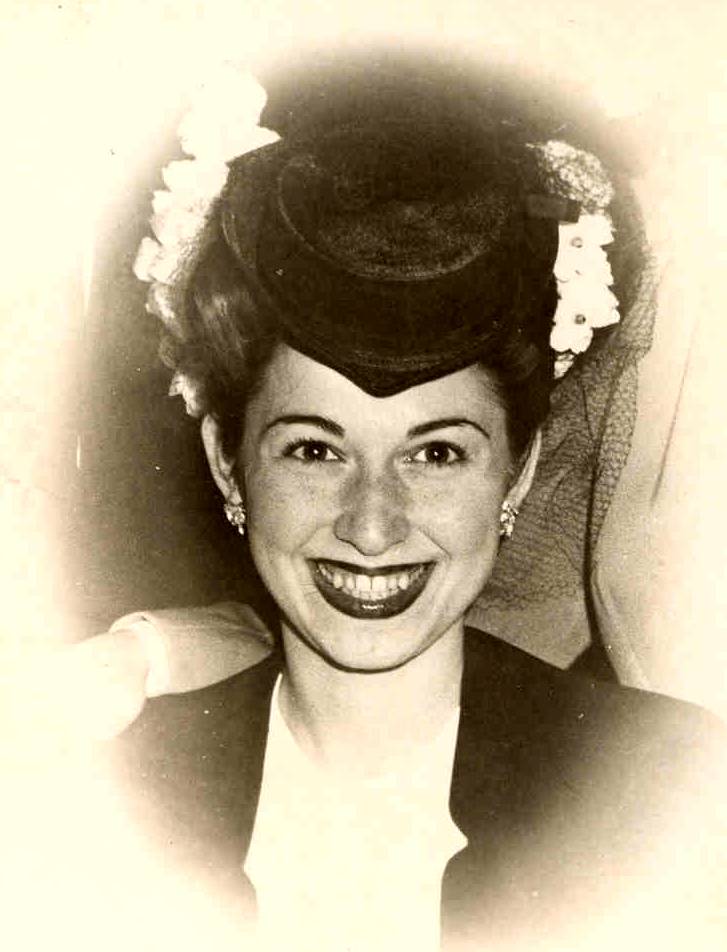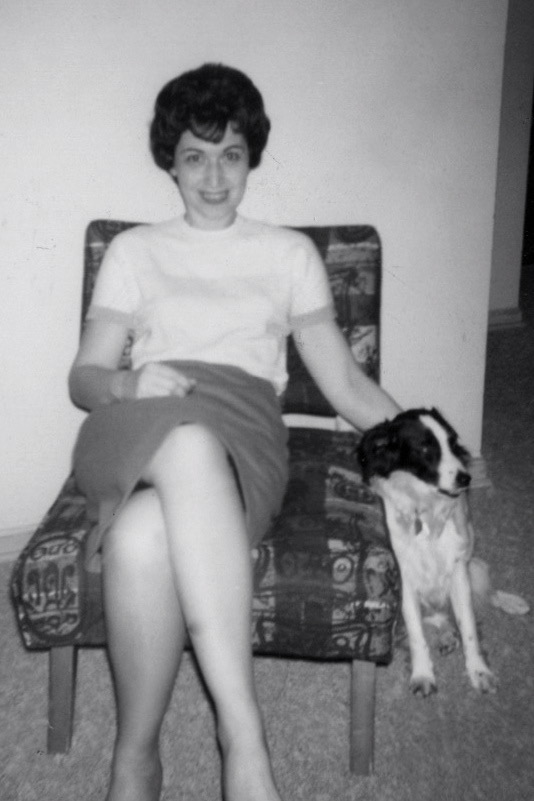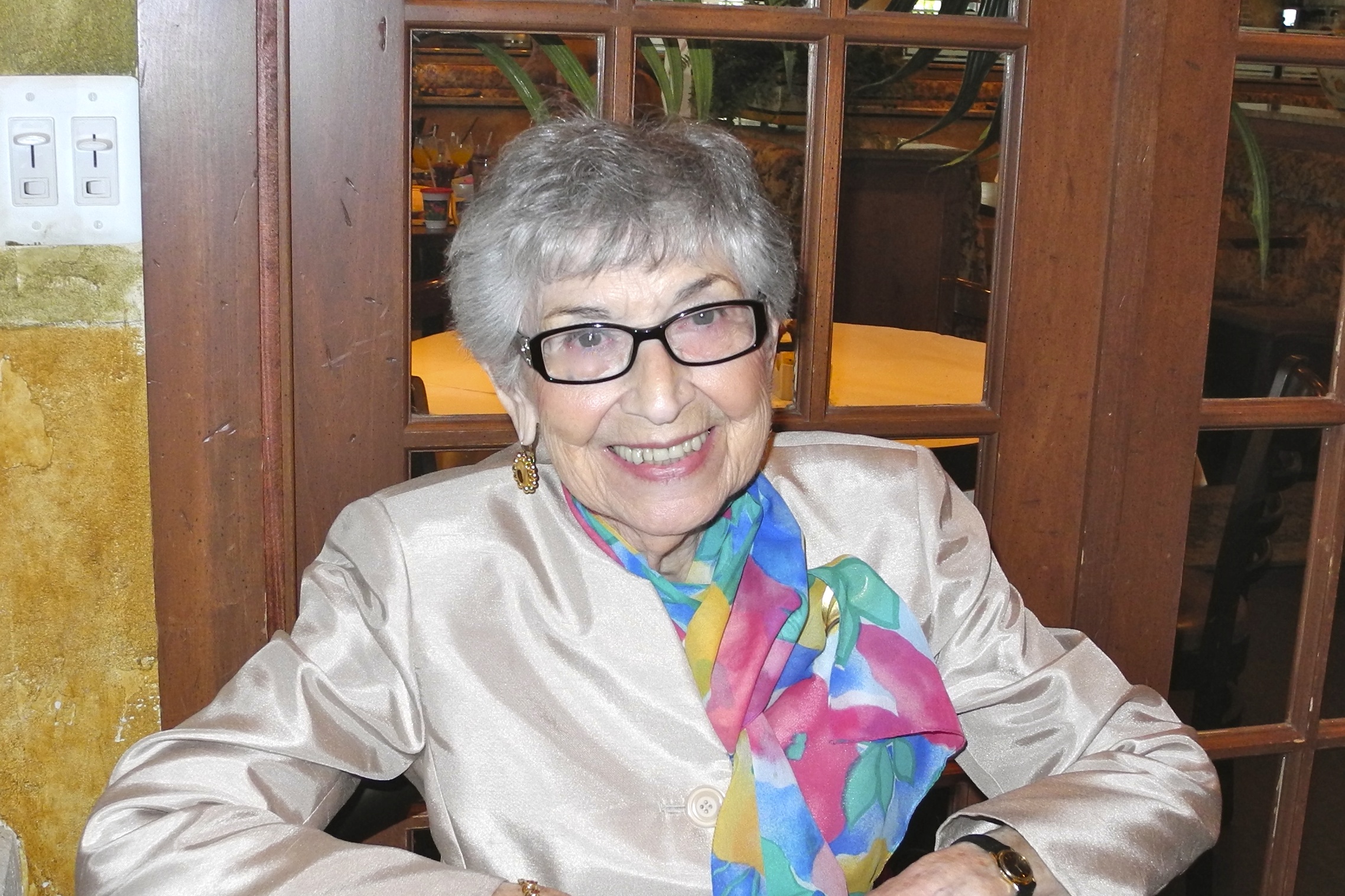
Right up to the day before she died, my mother was organizing her closets and drawers. Even though she had a large, half-empty walk-in closet in her bedroom after my father died, Mom kept her out-of-season clothing in a separate closet. At age 91, she worried she was not up to the important task of rotating her winter and spring clothing. When I asked her why she couldn’t just leave the winter clothing in place and add her spring wardrobe gradually as she wore things, she refused, telling me, “That’s not how it’s done.”
I lack my mother’s passion for tidying up. So I have decided to embrace the clutter in my life and put my energy into things that really “spark joy.”
In retrospect, I don’t know what possessed me to pick up Marie Kondo’s best-selling book about the Japanese art of decluttering and organizing. My late mother had tried her best to teach me the Jewish version of tidying up all of my life. Mom may not have folded her clothing to stand upright, and she certainly did not thank clothing she discarded for its service or stroke it to see if it “sparked joy,” but her drawers were the neatest I’ve ever seen. Like Kondo, she treated her socks and stockings with respect.
Mom learned her art of tidying up from her mother. My grandmother was a fanatic for cleanliness, especially in preparation for the Sabbath. She insisted Mom and her sister scrub the floors every Friday with Fels-Naptha soap and then cover them with newspaper so no one would step on the freshly cleaned floors. Much as my mother claimed she hated this chore, its spirit permeated my childhood.
Growing up, we cleaned, dusted, and vacuumed the entire house three times a week. I never understood the need for this because nothing was ever very dirty. Having rebelled against this regimen in tidying my own house, I now get why it is a good thing to attend to these chores once in a while. Mom also washed clothes on a rigid schedule, hung them out to dry, and ironed almost everything. Being her only daughter, I participated in this ritual as well.
But the tidying up part was all Mom’s job. Without Kondo’s book to guide her, my mother intuitively embraced many of its concepts. In fact, when I read the letters she sent to my father during WWII, many mentioned that she was organizing a closet. Clutter was her enemy. We didn’t have a lot of toys, but what we had was relegated to the basement “recreation room” and we were required to put everything away on a daily basis. In later years, she worried that as her grandchildren married, she would not have enough room on her living room side table to display all of the portraits without it looking messy.
My mother missed her calling. When we cleaned out her apartment after she died, every closet and drawer was organized. The items in her kitchen cupboards were neatly arranged, often in zip lock bags to keep them clean. She had two plastic boxes on the top shelf of her coat closet, one for gloves that were matched and rolled up together and one for hats. Mom should have written the bible for tidying up long before Kondo’s book was published. Here’s one chapter I know she would have included:
Nine Jewish Rules for Tidying Up (There are many more):
- When cooking or baking, clean up as you go. When you are finished, there should be no dirty bowls or measuring spoons or spatulas to clean.
- Wear an apron in the kitchen to keep your clothes clean.
- Make your bed the minute you rise in the morning (perhaps I was allowed to use the bathroom first – I don’t remember).
- Put all dirty clothes in the hamper and clean clothes neatly folded in drawers or hung up in the closet.
- Never leave dishes in the sink. Wash and dry them right after use, and put them away where they belong.
- Always sew up holes in clothing – “a stitch in time saves nine.”
- There is no such thing as a stain that cannot be removed. Try toothpaste, hairspray, or check in Hints from Heloise.
- Keep up with fashion trends, especially regarding hemlines. Discard items that are out of style, even if they bring you joy.
- Never throw things away. Foist them on your children or grandchildren. If you can’t guilt them into taking these things, then it’s permissible to donate them to charity.
I must admit I can’t finish Kondo’s book. Much as my closets are too full and my drawers are pretty messy, I lack my mother’s passion for tidying up. So I have decided to embrace the clutter in my life and put my energy into things that really “spark joy.”
I invite you to read my book Terribly Strange and Wonderfully Real and join my Facebook community.
Boomer. Educator. Advocate. Eclectic topics: grandkids, special needs, values, aging, loss, & whatever. Author: Terribly Strange and Wonderfully Real.





Laurie, I love your memories of your super-organized mother and grandmother, and your own admitted short-fall!
And as always your stories spark joy!
Thanks, Dana. To this day, I hate dusting (although when I do it, there is actually dust to remove).
Another beautiful testament to your mom, Laurie! That said, I love that you embrace the clutter.
My mother wasn’t Jewish although, since my Dad was, she liked to quip that she was Jewish by injection. (She might as well have been since making us kids feel guilty was one of her favorite pastimes.) She also loved making chopped liver from scratch . . . I wish I still had that meat grinder that clamped onto the kitchen shelf . . . as well as matzah ball soup. She must have subscribed to the same set of rules as your mom, because when she passed, everything was in order (including instructions for her service) so that managing her “estate” was a simple affair. My quip: “I’m half Jewish, the better half.”
LOL, Barbara! I think the guilt is the key. I can’t get my kids to take all of their own stuff that’s still lurking in their old bedrooms, closets, and my basement, let alone things I don’t need but would like to pass on to them. I took everything my mother offered — my grandmothers tea cups (never used them), extra pots and pans, countless decorative items — not because I needed/wanted them but because they were “gifted” to me. My kids homes are drowning in piles of paper. Mine is drowning in mementos I can’t gift or throw away.
My answer is to store it all in plastic bins from the office supply store. They stack easily, protect, and this year I plan on at least labeling them. “OLD LOVE LETTERS – TOSS WITHOUT READING” OR JUST “DONATE,” “RECYCLE,” “GOOD FOR YARD SALE,” that kind of thing.
Great plan, except there is no way I could toss anything without reading, let alone an old love letter. I even reread my fifth grade diary before I tossed it. Nothing in there for posterity.
I hear you, Laurie . . . and of course I still have those diaries! I meant labelling everything so others would know what to do with it after I’m gone. After someone has passed, it’s so difficult to have to go through every item of their life and make countless decisions about what to do with it. I just want to make it easier.
I think about the issue of what my kids will encounter and am trying to make it easier. After my father died, my brothers and I struggled to get their finances in order since my mother knew nothing. After my mother died, we had to make decisions about their stuff, which was easier because she explained what things were and how we should divvy things up.
Laurie, my mother didn’t do her own housework, but she was a neat freak and I learned a lot of that from her, though I’ve tried to not be as compulsive about it as she was. My husband is NOT and somehow I must live with his stuff too. Though I straighten the bed every morning, he now takes a nap every morning (and does not re-make the bed), so I have just had to learn to live with a messy bed. I cannot win this eternal struggle. He is not neat in the bathroom (and we only have cleaning help every other week…I’ll tidy up in between, but still…). So the public part of the house remains neat. The lived-in part, not so much.
Ouch, Betsy, that messy bed would kill me (one of the few of my mother’s teachings I can’t shed) but good for you that you have made peace with it. Like you, with two of us rattling around a big house and every other week cleaning help, we keep the public part pretty clean. No guests allowed in certain areas, although I have been trying to clean them out in anticipation of moving in the future. Hard to deal with over 40 years of clutter.
Laurie, I love this story! Fascinating to learn about your mother and her rigid rules, like about clothing rotation. My mother only started keeping her out-of-season clothes in a different closet after the kids left home – and she could use our closets! It was always a surprise to come home for a visit and find strange clothing in my closet. And I love her Rule #9, about foisting things on children and grandchildren, by guilt if necessary. That’s the most Jewish rule I ever heard!
I’m glad to hear that you have decided to embrace the clutter in your life despite your mother’s training. This prompt has certainly revealed which side of the clutter divide each of us is on, and it makes me happy that you are on the same side as I am!
Suzy, like your mother, I have taken over my kids’ closets as each one moved out and got married. So, aside from some things they never took and I have been trying to toss, the clutter is mine and I must own it. Rule #9 worked for my mother but not for me. I guess I didn’t instill enough Jewish guilt.